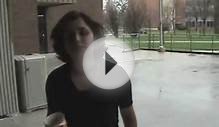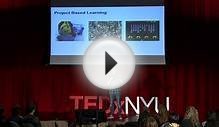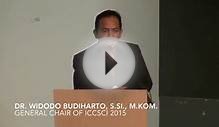
Welcome to the Web site of the Consortium for Computing Sciences in Colleges (CCSC). Whether you are a member of the Consortium, a participant in one of the regional conferences, or a professor or student with an interest in the issues pertaining to college computing, our hope is that you will find these pages informative and useful. Information regarding the regional conferences sponsored by the consortium is of particular interest.
About the Consortium
The purpose of the Consortium is to promote the betterment of computer-oriented curricula in two- and four-year colleges and universities; to improve the use of computing as an educational resource for all disciplines; to encompass regional constituencies devoted to this purpose; and to promote a national liaison among local, regional, and national organizations also devoted to this purpose. Predominantly these colleges and universities are oriented toward teaching, rather than research.
The Consortium holds meetings in conjunction with other computer education organizations, on its own, and sponsors sessions and tracks at such meetings. The annual meeting of the membership is held in conjunction with the ACM/SIGCSE Technical Symposium on Computer Science Education.
Notice of Annual Business Meeting
All members and those interested in joining CCSC are invited and welcomed to attend the Annual CCSC Business meeting on Friday, March 4, 2016, at 6pm at the 2016 SIGCSE Symposium in Memphis, TN.
From the President – Spring 2016
To quote an old adage, "The more things change the more they stay the same." When I started teaching computer science in the fall of 1983, many universities and colleges were starting computer science programs. It was difficult to find faculty for the new programs. Classes were full and computer science and information systems were the hot new programs on the block. Fast forward 32 years to today and we find amazing parallels. While there is no avalanche of new programs, existing programs are finding that the courses they offer are overflowing. Computer science, information systems, and information technology in all their various forms are the hot programs on the block. And like 32 years ago, many new faculty are needed to meet the growing demands.
In 1985, the Consortium for Computing Science in Colleges formed in order to provide those learning to teach computing in the crucible of the classroom a forum for sharing ideas, the opportunity to network together, and a chance to learn from each other. The mechanism adopted to support the Consortium’s activities was that of small regional conferences that allowed easy and affordable access. Over the 30 years since its founding, the Consortium has developed other programs to support computing education, but our core commitment to providing support for those teaching the computing sciences in colleges remains. Our main mechanism today is the same as in 1985: the affordable, quality regional conference. The major difference is that instead of one or two conferences per year we now support 10 conferences per year.
As in the mid-1980s, over the next few years there will be many new faculty members entering computing classrooms for the first time. They will need classroom ideas, they will need to talk to those facing similar issues and they will need to share ideas. CCSC conferences are the perfect venue for this type of communication. I cannot count the number of assignments, the number of new ideas, or the number of new pedagogical approaches I have gathered over the years at CCSC Conferences. I am sure that many of you share this experience with me. It is time for us to step up and share what we have learned with the wave of new faculty that are coming along. Pick a regional conference or two and write an experience report on what you are doing, share an "Nifty Assignment", put together a panel discussion on one of the myriad of issues we and our students are facing, put together a tutorial on a technology you are using in a course, organize a formal study of the efficacy of one of your pedagogical innovations, or write a paper describing the results of a formal study. Above all, share what you are doing in the classroom.
INTERESTING VIDEO




 The Association for Computing Machinery (ACM) is a learned society for computing. It was founded in 1947 and is the world's largest and most prestigious scientific and educational computing society. Its membership is more than 100,000 as of 2011. Its headquarters...
The Association for Computing Machinery (ACM) is a learned society for computing. It was founded in 1947 and is the world's largest and most prestigious scientific and educational computing society. Its membership is more than 100,000 as of 2011. Its headquarters...








